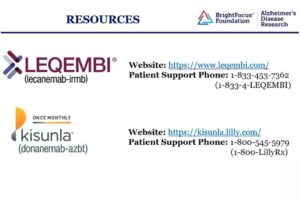Why Some Medicines Affect Memory
A few common drug types can interfere with the brain’s acetylcholine system — crucial for memory and focus — or cause sedation that clouds thinking.
Medical Disclaimer
This article is for informational and educational purposes only. It does not constitute medical advice and should not replace consultation with a qualified healthcare provider. Always discuss any medication changes, substitutions, or discontinuations with your physician or pharmacist before making adjustments.These effects are most concerning when medicines are taken for months or years, or when several combine to create a high “anticholinergic burden.”
The goal isn’t to stop necessary medications suddenly, but to work with your doctor or pharmacist on safer substitutions where possible.
Bladder Medications
| Higher-Risk Drugs | Safer Substitutes | Notes |
|---|---|---|
| Oxybutynin, Tolterodine, Solifenacin | Mirabegron (Myrbetriq) | Works differently; minimal effect on memory. |
| Darifenacin, Fesoterodine | Behavioral bladder training, pelvic floor therapy | May reduce medication need entirely. |
Tip: Mirabegron may slightly raise blood pressure — periodic monitoring is advised.
Antidepressants and Anxiety Medicines
| Higher-Risk Drugs | Safer Substitutes | Notes |
|---|---|---|
| Amitriptyline, Paroxetine | Sertraline (Zoloft), Citalopram (Celexa), Escitalopram (Lexapro) | Similar benefits with lower anticholinergic load. |
| Benzodiazepines (Lorazepam, Diazepam) | Cognitive-behavioral therapy, short-term buspirone, low-dose SSRI | Benzos increase fall and confusion risk in older adults. |
Tip: Never stop a benzodiazepine abruptly; taper gradually under medical supervision.
Sleep Aids and Allergy Pills
| Higher-Risk Drugs | Safer Substitutes | Notes |
|---|---|---|
| Diphenhydramine, Chlorpheniramine, Doxylamine | Loratadine (Claritin), Cetirizine (Zyrtec), Fexofenadine (Allegra) | Non-sedating antihistamines spare acetylcholine. |
| OTC “PM” sleep pills (contain diphenhydramine) | Melatonin, sleep-hygiene program, low-dose doxepin (3–6 mg) | Improves sleep without cognitive fog. |
Pain and Neurologic Medications
| Higher-Risk Drugs | Safer Substitutes | Notes |
|---|---|---|
| Long-term opioids (esp. Tramadol) | Acetaminophen, topical NSAIDs, physical therapy | Chronic opioid use may slow cognition. |
| Valproate (Depakote) | Lamotrigine, Levetiracetam, or other modern anti-seizure meds | Valproate can cause reversible memory issues. |
Stomach Acid Drugs
| Potentially Concerning | Safer Strategy | Notes |
|---|---|---|
| Long-term PPIs (Omeprazole, Esomeprazole) | Review need; consider H2-blockers or on-demand dosing | No firm causal link, but periodic review recommended. |
Key Takeaways
- Review your medication list with your doctor or pharmacist at least once a year.
- Ask specifically about anticholinergic burden.
- Don’t stop medications abruptly — especially antidepressants, benzodiazepines, or seizure drugs.
- Lifestyle and behavioral therapies often reduce or eliminate the need for riskier prescriptions.
Protecting memory can start with something as simple as a medication check-up.












I’m glad to see you are finally talking about commonly prescribed pharmaceuticals that increase dementia risk, but why do you mention so few of them? There are many more anticholinergic drugs that should be listed so people can be aware of them and ask their doctors to find safer alternatives.